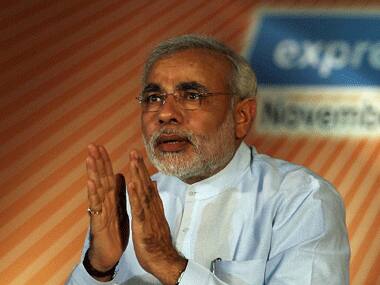Slightly exasperated by the unending shadow boxing of fact and fiction in Narendra Modi’s recent speeches, columnist Sadanand Dhume blurted out a question that has also crossed our minds several times over in the past few months. “How hard can it be for a prime ministerial candidate to hire a fact checker for his speeches?” Now given that the platform he chose to air his concern on happened to be Twitter, someone tweeted back at him asking, “have u ever done fact check on what mr Rahul Gandhi speaks?” Now Dhume has never made bones about his inclination towards right-of-centre politics and had famously also rejected his invitation to a Wharton meet where an invitation for Narendra Modi to speak, was later rescinded. His politics notwithstanding, Dhume was nevertheless treated to the particular brand of paranoid attacks that typify a hard core BJP supporter in the virtual world. An article on Hindustan Times echoed the concerns voiced by Dhume and several others, pointing out that it doesn’t suit a prominent Prime Ministerial candidate of a party to trip on facts endlessly. Referring to Modi’s comment that Kashmiri women, who married outsiders were immediately dispossessed of their rights, writer Vinod Sharma points out that there is a complicated history pertaining to the issue of rights of Kashmiri women - one that was taken up by the Jammu and Kashmir High Court way back in 2002. [caption id=“attachment_1264025” align=“alignleft” width=“380”]  Narendra Modi has been attacked for misrepresenting facts. AFP.[/caption] Just a few weeks before that, while attempting to exploit yet again the perceived dissent between Sardar Patel and Nehru, Modi buoyantly declared that Nehru had not attended Patel’s funeral. Only to be corrected soon after. He immediately issued a ‘clarification’ correcting himself. An editorial on The Economic Times noted: “There have been signs of Modi invoking a more inclusive rhetoric — and it remains to be seen if the dictates of running for the top post in a country like India modulate the hardliner perception. But whether it is deliberate fudging or overzealous aides funnelling wrong information, false claims only snip away the edges of the Modi image.” However, the bad news here is, the practice of fact-checking and using facts to question the credibility of Modi or any leader’s politics in India, is still restricted to drawing room conversations and the social media. Political opinions - in both these intellectual spaces - are mostly known to be inflexible, not pliable by debates and formed tenuously over time. Opinions on social media, especially, seem to make little out of factual gaffes. In fact, pointing out a glaring factual mistake is often made out to be some sort of an extension to organised political propaganda. So political affiliations are least likely to be swayed even if Modi’s speeches are bombarded with wrong facts. And the voting masses - outside the realm of Twitter and newspaper columns - aren’t keen on picking on factual errors. They are conditioned to either trust lofty political rhetoric or dismiss all forms of it as irrelevant. In fact, the masses hardly have an appetite for understanding the erudition of the leader they are voting for - had it been the case, more than three-fourths of the country’s politicians wouldn’t have made it to Parliament. After all, while it isn’t a very flattering statement on the country’s literacy, how many voters can actually conclusively say which dynasty Chandragupta hailed from? A trending topic on Twitter all day today was #LooteriBahu - a reference to Sonia Gandhi’s wealth as indicated in a _Huffington Post_ article . You might say it’s keeping with the great intellectual tradition that spawned terms like Feku or Pappu, but the quality of the language is representative of the quality of the wider political discourse of the country. One that is crass, easily excited by shallow humour and aggressive, decisively macho opponent bashing. It is also, predictably, forgiving of hyperbole and contortion of facts. India takes to slapstick more easily than to sophistication. And in that political climate it doesn’t matter where Modi send Takshila packing to.
However, the bad news here is, the practice of fact-checking and using facts to question the credibility of Modi or any leader’s politics in India, is still restricted to drawing room conversations and the social media.
Advertisement
End of Article


)
)
)
)
)
)
)
)
)



